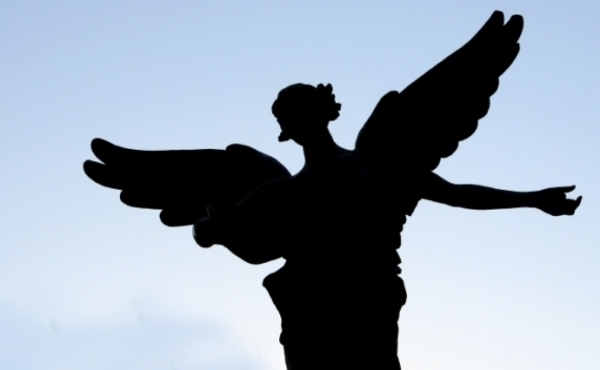May 22, 2020
Church for the End of Time

On January 15, 1941, at the Stalag VIII-A prisoner-of-war camp, in Görlitz, Germany, a crowd of prisoners and Nazi guards gathered in a freezing hall to listen to a performance.
The make-shift orchestra, made up of four prisoners performing the four instruments available at the camp – a worn-out cello, piano, clarinet, and violin – became one of the most famous compositions to come out of the war years.
At the outset of World War II, French composer Olivier Messiaen was drafted into the French army and assigned to a non-combatant role. Nevertheless, in May 1940, as France was succumbing to the Nazi invasion, he was captured at Verdun and taken to a war camp in a town near the border of Germany and Poland.
There at Stalag VIII-A, he discovered other French musicians who had also been captured and imprisoned - a violinist, a cellist, and a clarinetist. A Nazi guard helped Messiaen obtain pencils and paper on which he could compose his work, Quatuor pour la fin du temps (Quartet for the End of Time).
This is a great story, but what does it have to do with the Church?
We’re not in POW camps, to be sure, but in the midst of COVID-19 many of us indeed feel trapped. We can’t gather in the same ways. We aren’t able to worship in the ways to which we’ve grown accustomed. We may not be able to participate in the same mission and outreach that we’ve done before. We don’t have access to the same places and people that we’ve come to rely upon in the past.
But that doesn’t mean we stop being the Church.
Messiaen was a composer, so in the midst of hardship and imprisonment he did what he had always done: he composed beautiful music. He didn’t have access to the same quality of musical instruments, but he used what he had. He did what he was made to do. And it is hard to dispute the beauty and significance of the work itself.
We are Christians, and we are the Church. In the midst of hardship and struggle we must do what we have always done. But it will look different for a time. Many of us don’t have access to our buildings. We might not be able to participate in the Eucharist. And it might be wise for us to fast from congregational singing for a while.
I’m struck by a Los Angeles Times review of a performance of “Quartet for the End of Time” from 1986, and I think it has something to say to all of us who are walking through this time together. The reviewer wrote, “Unfortunately, most listeners cannot slow down their concept of time sufficiently, and they find the Quartet uncomfortably long, static, and repetitious--which it is.”
Many of us may find this time of fasting from corporate worship, fasting from Eucharist, fasting from singing, to be “uncomfortably long, static, and repetitious...” And it is. It’s hard, but it’s necessary. If not for our own health and safety, then for the health and safety of those more vulnerable.
But we are Christians, and we are the Church. And so we can take on this fast, for however long it lasts, out of love. Can we “slow down [our] concept of time” and see this not just for the challenge that it presents? Can we also see this for the opportunities that it provides? Opportunities to worship in new ways. Opportunities to equip people for worship and formation in their own homes. Opportunities to serve our neighbors in new ways. Opportunities to try out new technologies that allow us to reach more people.
In the midst of the challenges, the opportunities are endless. In the midst of the POW camp, Messiaen saw clearly enough to compose hauntingly beautiful music. Can we, as Christians and as the Church, see clearly enough to seize the opportunities before us?
What is something you or your congregations are doing, in new ways, to reach out to others?





